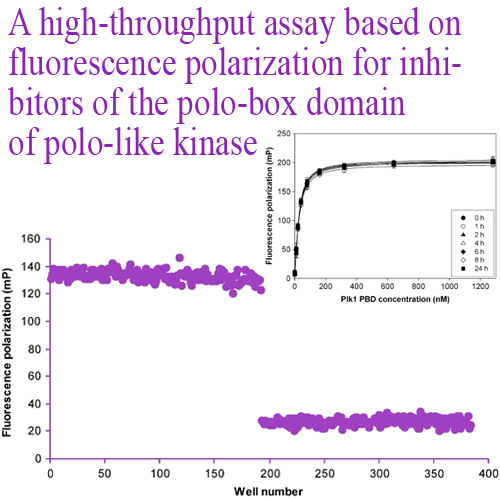A high-throughput assay based on fluorescence polarization for inhibitors of the polo-box domain of polo-like kinase
19-May-2008
Analytical Biochemistry, 2008, doi:10.1016/j.ab.2008.08.014, published on 19.05.2008
Analytical Biochemistry, online article
Analytical Biochemistry, online article
The serine/threonine kinase polo-like kinase 1 (Plk1) is critically involved in multiple mitotic processes and has been established as an adverse prognostic marker for tumor patients. Plk1 localizes to its substrates and its intracellular anchoring sites via its polo-box domain (PBD), which is unique to the family of polo-like kinases. Therefore, inhibition of the Plk1 PBD has been suggested as an approach to the inhibition of Plk1 that circumvents specificity problems associated with the inhibition of the conserved adenosine triphosphate (ATP) binding pocket. Here we report on the development of a high-throughput assay based on fluorescence polarization that allows the discovery of small-molecule inhibitors of the Plk1 PBD. The assay is based on binding of the Plk1 PBD to a phosphothreonine-containing peptide comprising its optimal binding motif with a Kd of 26 ± 2 nM. It is stable with regard to dimethyl sulfoxide (DMSO) and time, and it has a Z′ value of 0.73 ± 0.06 in a 384-well format.











